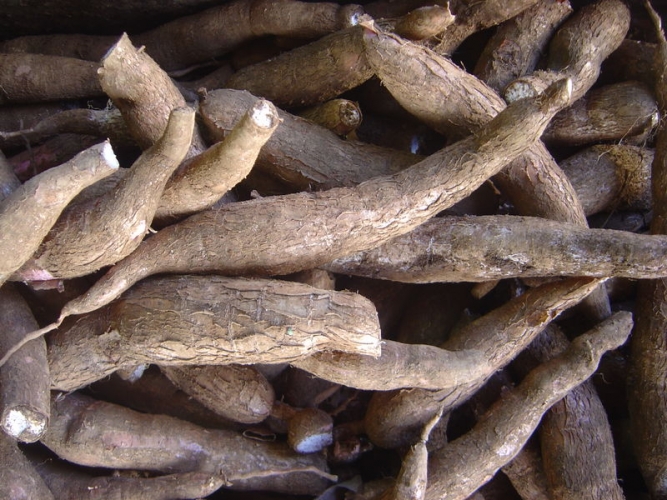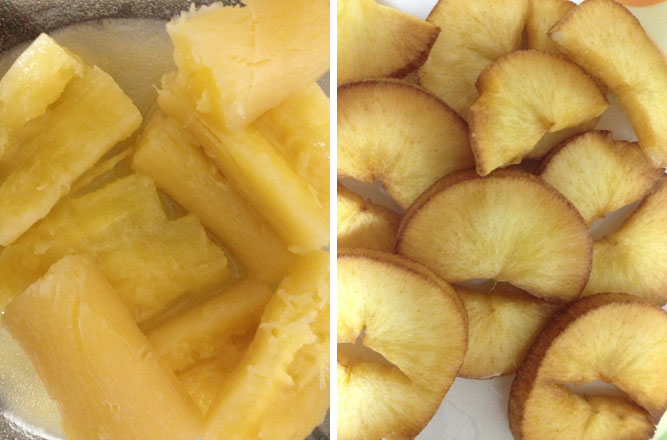©2015 Loop Barbados Inc. | All Right Reserved | Disclaimer | Privacy Policy | Terms & Conditions
Cooking Bajan Style: Cassava
10th October, 2012
Here in Barbados we have many ground provisions which make up our daily diet, one of these being cassava. Also known as Yuca, Manioc, or Mandioca, cassava is a woody shrub with an edible root which grows in tropical and sub tropical areas making Barbados the perfect growing ground for this provision. It originated from Central America and Northern South America and has been a long standing crop on many plantations and farming institutions around the island. Not only is cassava used primarly in its root form but it is harvested and used to make other secondary and tertiary products such as cassava flour, cassava pone (a favourite on the island), cassava bread and cassava cakes.
Cassava should not be eaten raw as its root is composed of small quantities of cyanogenic glycosides especially hydroxycyanic acid. These Cyanide compounds interfere with cellular metabolism by inhibiting cytochrome-oxidase enzyme in the human body. Therefore, peeling followed by cooking ensures that the cassava is safe for consumption.
To prepare cassava wash the whole root in cold water, dry mop, and trim the ends. Cut into 2-3 inches long quarters. Using a paring knife, peel the outer skin until you find white flesh inside. Do not use the vegetable peeler, as its skin is very tough. Once cooked, cut away any strings running along its inner core.

So What Ways Can You Eat Cassava?
- Cassava chips or fried cassava
- Cassava Pone
- Cassava Breads and Cakes
- Boiled Cassava with melted butter (pairs well with stewed meat dishes)
- Cassava Pie
- Cassava Puree for soups
- Cassava Dumplings
Health Benefits of Cassava
Cassava does not only taste delishious but is also incredibly healthy. Below are some of its health benefits:
- Cassava is very low in fat and contains more protein than any other tropical food source like potato, yams or plantains.
- Cassava is gluten free, making it ideal for special food preparations for celiac disease patients.
- Cassava is a moderate source of some valuable B-complex group vitamins such as folates, thiamin, pyridoxine (vitamin B-6), riboflavin, and pantothenic acid.
- The root is high in vitamin K which has a potential role in bone mass building by promoting osteotrophic activity in the bones. It also has an established role in the treatment of Alzheimer's disease patients by limiting neuronal damage in the brain.
- The root is a chief source of some important minerals like zinc, magnesium, copper, iron, and manganese.
- Cassava is said to help fight illnesses such as cancer, ADD, ADHA, celiac disease, irritable bowel syndrome and autism.
Melanie & Kimberly*

We would love to hear what you think.